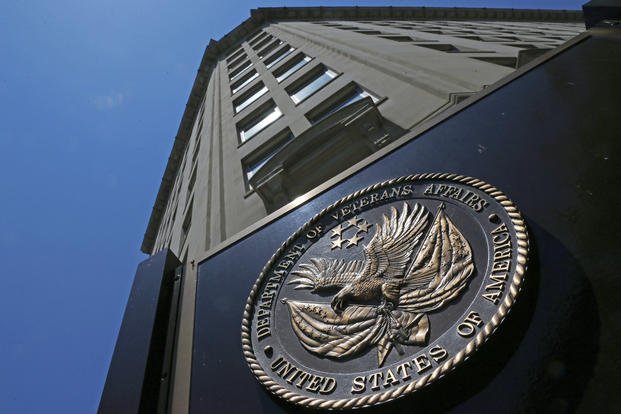Thousands of Veterans Affairs employees must return to work by the end of the month under an announcement by the department Monday.
In response to a Jan. 20 directive from President Donald Trump, the VA announced that eligible employees must work full time in VA facilities. In a press release Monday, the department spelled out which of its roughly 96,000 employees who now work remotely or telework must comply.
"This is a commonsense step toward treating all VA employees equally," Acting VA Secretary Todd Hunter said in a statement. "Most VA clinical staff don't have the luxury of working remotely, and we believe the performance, collaboration and productivity of the department will improve if all VA employees are held to the same standard."
Read Next: First 10 Migrants Arrive at Guantanamo Bay and Will Be Held in Terrorist Prison
According to the press release, more than 20% of the VA's 479,000 employees work remotely. Some will be exempt from the requirement, including those who receive approval for a disability, medical condition or other "compelling reason," according to the announcement.
This also includes military spouses who receive permanent change of station, or PCS, orders.
But political appointees, members of the senior executive service or their equivalents, and senior-level professional employees no longer will be allowed to telework, and their agreements will end Feb. 24.
Supervisors who telework within 50 miles of a VA facility must also return to work, with their agreements also ending Feb. 24, according to the announcement.
And employees who are not union members and work within 50 miles of an agency facility have until April 28 to return to their duty stations.
The announcement does not apply to those whose work stations are 50 miles or more from an agency facility, and it also does not include union members.
According to the VA, guidance regarding these groups will be announced at a later date.
Shortly after he was sworn into office, Trump directed federal department heads to terminate remote work arrangements "as soon as practicable" and require employees to work at their respective duty stations full time.
It's unclear how many of the VA's 96,000 remote workers will be eligible for exemptions or fall under collective bargaining agreements.
During his confirmation hearing Jan. 21, VA Secretary Doug Collins said that 80% of VA employees are union members.
"Look, we're going to encourage them to come back to work. We're going to follow the president's directive on that, and we're going to make sure that we get people in there, because at the end of the day, it's about veterans," Collins said.
The Senate confirmed Collins on Tuesday in a 77-23 vote.
Critics of Trump's policy say that the number of federal employees who telework has been exaggerated and those who work remotely do their jobs.
"This directive turns back the clock to before 2010 when Congress required federal agencies to expand telework by law. Congress took this action a full decade before the pandemic, recognizing telework as an important tool for agencies' operational efficiency," said Everett Kelley, president of the American Federation of Government Employees, a union that represents more than 300,000 VA employees, in a press release Jan. 20.
On Monday, Hunter sent an email to all VA employees saying the department would offer employees the chance to submit a "deferred resignation" by Feb. 6 and get paid through Sept. 30.
Related: VA Declares 300,000 Health Care Jobs Exempt from Ordered Freeze on Federal Hiring












